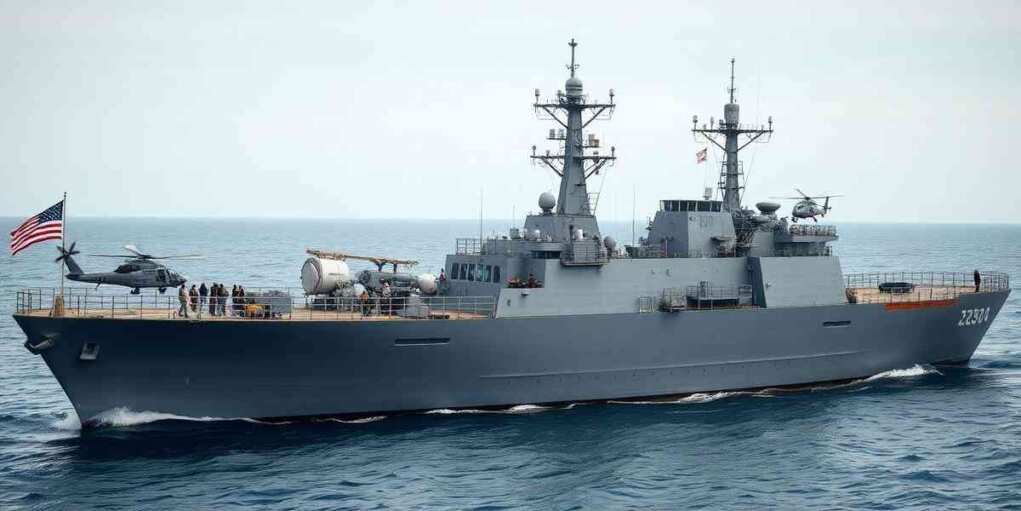Trump Calls For War – Memo Outlines What’s Coming For Drug Kingpins

President Trump sent a memorandum to Congress on Thursday. The document calls for formal “non-international armed conflict” against Venezuelan drug cartels. This represents a major escalation in the war on drugs.
The War Department has been interdicting and destroying suspected Venezuelan drug smugglers. These operations happen in the open ocean. Trump’s memo places official approval on those actions. It also serves as official notification to Congress.
Fox News obtained details from the memo. The language explains Trump’s constitutional authority clearly.
“The President directed these actions consistent with his responsibility to protect Americans and United States interests abroad and in furtherance of United States national security and foreign policy interests, pursuant to his constitutional authority as Commander in Chief and Chief Executive to conduct foreign relations.”
The Trump administration is entering uncharted waters. Drug cartels may have the wink-wink approval of Venezuela’s government. But they’re not an official branch of Maduro’s dictatorship. They’re simply a criminal organization. One that El Presidente finds convenient to ignore.
There may be historical precedent though. It goes back to the very early years of the republic. Thomas Jefferson was president at the time.
The Barbary pirates operated out of Tripoli. That’s in what is now Libya. These pirates and slave-traders collected monetary tribute from ships in the Mediterranean.
In 1801, President Jefferson told them where to stick their tribute demands. The pasha of Tripoli responded by starting war with the United States.
The analogy isn’t perfect. Those pirates had support from an actual national ruler. But there’s an argument to be made. Any nation ruled by pirates isn’t a legitimate nation. It’s simply a cartel of another, larger form.
President Jefferson didn’t back down. He sent a squadron of U.S. Navy ships to the Mediterranean. The First Barbary War had begun. The fighting continued until 1804.
A young American lieutenant named Stephen Decatur led a famous raid. He took a detachment into the harbor of Tripoli. Their mission was destroying the captured U.S. frigate Philadelphia. This episode gave the Marine Corps anthem its famous line: “to the shores of Tripoli.”
President Trump hasn’t invoked this precedent yet. The New York Times raised some legal questions about the move on Thursday.
Geoffrey S. Corn is a retired judge advocate general lawyer. He was formerly the Army’s senior adviser for law-of-war issues. He said drug cartels aren’t engaged in “hostilities” against the United States.
Corn made his legal argument clear. Selling a dangerous product is different than an armed attack.
He noted it’s illegal for the military to deliberately target civilians. Even suspected criminals can’t be targeted if they’re not directly participating in hostilities.
“This is not stretching the envelope. This is shredding it. This is tearing it apart.”
But Corn isn’t in any official position. The president likely consulted with his own legal advisors before issuing this memo.
The United States carried out a similar war very recently. Against a non-national entity: Al Qaeda.
After September 11, 2001, the United States went to war against Al Qaeda. They’re a nonstate actor operating across multiple countries. Some legal scholars objected at the time. They said the country was stretching the rules. They likened Al Qaeda to a criminal band of pirates.
But the Supreme Court found the conflict with Al Qaeda was a real war. They ruled the Bush administration’s use of wartime powers was lawful. The government could hold captured Qaeda members in indefinite detention without trial.
The Court also said the government was bound by the Geneva Conventions. Prisoners must be treated humanely. Torture was not permitted.
This will likely go to the courts. It may proceed to the Supreme Court. Just like the Al Qaeda case did.
But the actions of the cartels seem akin to piracy. They’re aggressive actions against a target nation by a non-state actor. Therefore the cartels are eligible to be placed in the crosshairs of United States armed forces.
One wonders what Thomas Jefferson would have done. The answer seems clear. He’d have sent the Navy.
Trump is following that precedent. He’s using military force against a criminal enterprise that threatens American lives. The cartels have killed countless Americans through the drugs they smuggle. They’ve destabilized entire regions. They’ve corrupted governments.
Now they’re in the crosshairs. The full might of the United States military can be brought to bear. Ships can be destroyed. Facilities can be targeted. Leaders can be eliminated.
The drug war just entered a new phase. And the cartels should be terrified.
